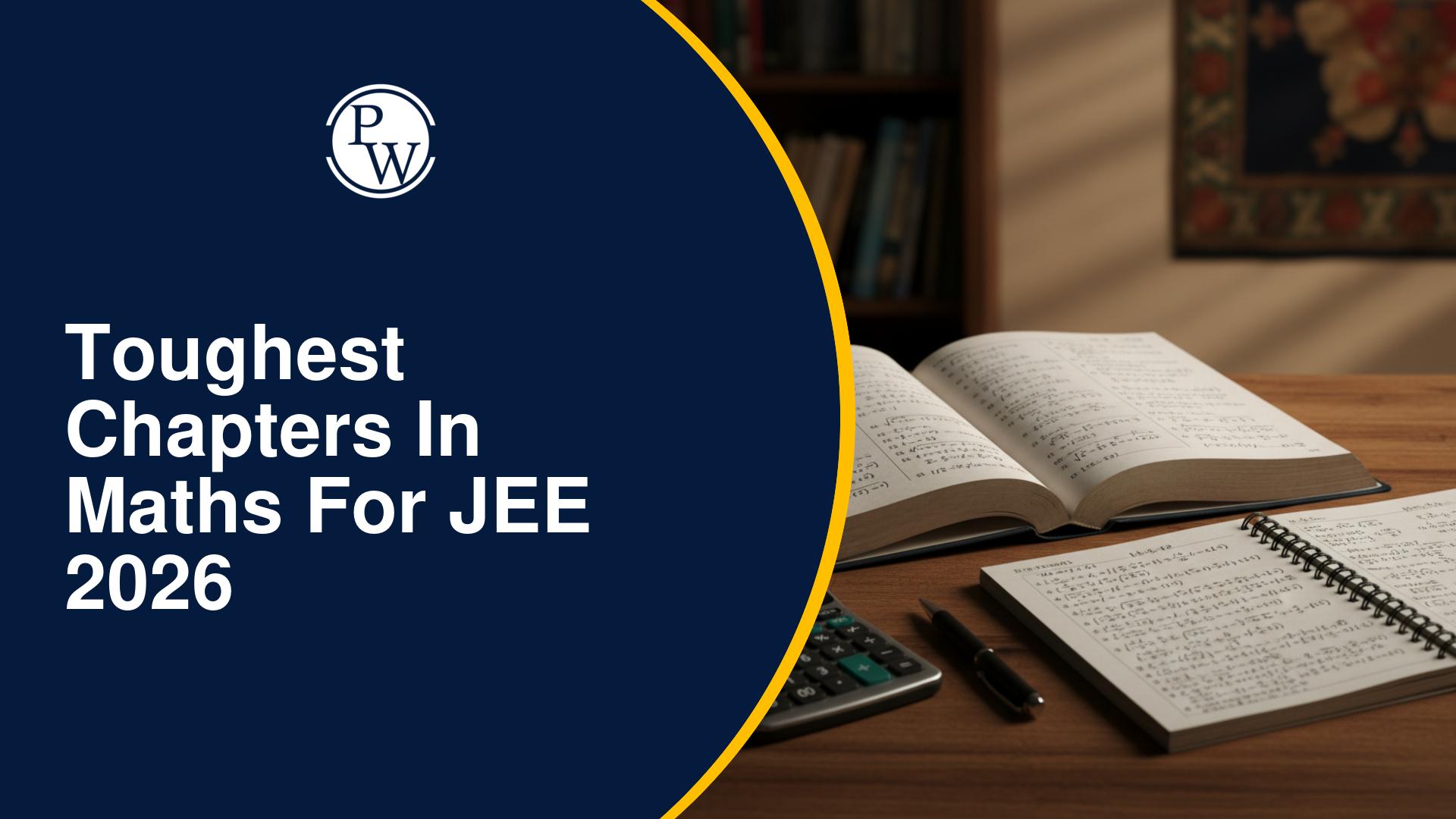
JEE Main 2025 Session 2 April 4 Exam Analysis : The JEE Main 2025 Session 2 exam for April 4 is going to be conducted in two shifts today—Shift 1 exam exam has concluded from 9:00 AM to 12:00 PM and Shift 2 is conduct from 3:00 PM to 6:00 PM. candidates can check A detailed analysis of Shift 1 Analysis here. based on students’ feedback.
This analysis covered the overall difficulty level, subject-wise question distribution, and key topics asked in the paper. Those appearing for upcoming shifts can use these insights to understand the question pattern and level of difficulty.
JEE Main 2025 April 4 Shift 1 Exam Analysis Out
JEE Main 2025 April 4 Shift 1 exam has concluded, and students have shared their feedback on the paper's difficulty level. Overall, the exam was considered challenging, especially in Mathematics. Here’s a detailed analysis based on student responses.
JEE Main 2025 April 4 Shift 1 Exam Analysis: Subject-Wise Difficulty Level
-
Mathematics : This section was the toughest. Many students found the questions tricky, lengthy, and comparable to JEE Advanced level.
-
Physics : The difficulty level was moderate. Some numerical-based questions required careful calculations.
-
Chemistry : Physical and Organic Chemistry had more weightage than Inorganic Chemistry. The overall difficulty was moderate, with Physical Chemistry being easier.
Topics Covered in Chemistry: Questions were asked from:
-
Chemical Bonding
-
Biomolecules
-
General Organic Chemistry (GOC)
-
Thermodynamics
-
Coordination Compounds
-
Crystal Field Theory (CFT)
-
Electrochemistry
-
Hydrocarbons
-
Chemical Kinetics
Mathematics Difficulty Compared to JEE Advanced: Many students felt that the Mathematics section was as tough as JEE Advanced. The questions were not only lengthy but also required deep conceptual understanding.
JEE Main 2025 Session 2 April 4 Exam Analysis: Student Feedbacks
-
The Mathematics section was the most difficult, with tricky and time-consuming questions.
-
Physics was of moderate difficulty.
-
Chemistry had a higher number of questions from Physical and Organic Chemistry, while Inorganic Chemistry had fewer questions but was manageable.
-
The overall difficulty level was slightly higher than the January 28 exam.
This analysis can help students appearing in upcoming shifts understand the JEE Main exam pattern and the type of questions they can expect.
JEE Main 2025 April 4 Shift 1 Paper Discussion
The first shift of JEE Main 2025 on April 4 is currently being conducted from 9 AM to 12 PM. After the exam ends, PW mentors will analyze the question paper, covering the overall difficulty level, subject-wise distribution, and important topics from Physics, Chemistry, and Mathematics. Interested applicants can access the JEE Main 2025 April 4 Shift 1 Paper Discussion from the direct link given below or by visiting the Lakshay JEE YouTube channel.
JEE Main 2025 April 4 Shift 2 Paper Discussion
The second shift of JEE Main 2025 on April 4 is taking place after a three-hour gap following the first shift, running from 3 PM to 6 PM. Once the exam concludes, PW mentors will analyze the paper based on feedback from test takers. The JEE Main 2025 April 4 Shift 2 Paper Discussion is going to cover subject-wise difficulty levels, important topics, and question trends to help students assess their performance and provide valuable insights for those appearing in upcoming exams.
JEE Main 2025 April 4 Shift 2 Exam Analysis Out
The second shift of JEE Main 2025 session 2 exam for April 4 has ended. As per student feedback, the Mathematics section was lengthy and time-consuming. Physics was relatively easy, covering mostly theory-based and formula-driven questions. Chemistry was rated as moderate, with a balanced mix of organic, inorganic, and physical chemistry topics.
JEE Main 2025 April 4 Shift 2 Overall Difficulty Level
Based on student reactions and expert analysis, the overall difficulty level of the exam was easy to moderate. Physics and Chemistry had many NCERT-based questions, making them manageable, while Mathematics was more challenging due to lengthy calculations and complex problem-solving.
JEE Main 2025 April 4 Shift 2 Subject-Wise Analysis
JEE Main 2025 April 4 Shift 2 Physics: Easy to Moderate
-
Most students found Physics to be the easiest section.
-
Several questions were directly based on NCERT concepts.
-
Topics Covered: Mechanics, Modern Physics, Electrostatics, Current Electricity, and Optics.
JEE Main 2025 April 4 Shift 2 Chemistry: Easy to Moderate
-
Chemistry was considered the most scoring section.
-
The paper had a good mix of organic, inorganic, and physical chemistry.
-
Topics Covered: Inorganic Chemistry had direct factual questions, Organic Chemistry included reaction mechanisms, and Physical Chemistry featured simple numerical problems.
JEE Main 2025 April 4 Shift 2 Mathematics: Moderate to Difficult
-
Mathematics was the toughest section due to lengthy calculations and tricky questions.
-
It needed strong conceptual clarity and problem-solving skills.
-
Topics Covered: Calculus, Algebra, Probability, Coordinate Geometry, and 3D Geometry.
Overall JEE Main 2025 Session 2 April 4 Exam Analysis: Subject-Wise Difficulty Level for Both Shifts
The JEE Main 2025 April 4 exam was conducted in two shifts, and based on student feedback, the overall analysis is outlined below. While both shifts had some similarities, there were also noticeable differences in terms of difficulty and subject distribution. Applicants can check out the subject-wise overall JEE Main 2025 Session 2 April 4 Exam Analysis for both shifts here:
Mathematics: Moderate to Difficult
-
Shift 1: The Mathematics section was the toughest, with lengthy calculations and complex problems. Many students felt that the level of difficulty was closer to JEE Advanced.
-
Shift 2: The section was still challenging but slightly more manageable. The questions were time-consuming, and students needed good problem-solving skills to tackle them. Topics covered included Calculus, Algebra, Coordinate Geometry, and 3D Geometry in both shifts.
Physics: Easy to Moderate
-
Shift 1: Physics was moderate in difficulty, with both theory and numerical-based questions. Some numerical problems required careful calculations. Topics covered included Mechanics, Electrostatics, and Current Electricity.
-
Shift 2: Physics was considered easier in this shift, with many formula-based questions directly from NCERT concepts. Students found it more manageable. Key topics included Mechanics, Modern Physics, Electrostatics, and Optics.
Chemistry: Easy to Moderate
-
Shift 1: Chemistry had a moderate difficulty level, with more questions from Physical and Organic Chemistry. Topics like Chemical Bonding, Thermodynamics, and Chemical Kinetics were important in this shift.
-
Shift 2: Chemistry was rated as scoring by many students in this shift. The section was balanced and mostly based on NCERT. Topics like Inorganic Chemistry, Organic Reactions, and Physical Chemistry were covered, with questions generally being straightforward.
JEE Main 2025 Session 2 April 4 Exam Analysis FAQs
Q.1. What is the overall difficulty level of the JEE Main 2025 Session 2 April 4 exam?
Q.2. Which subject is the toughest in the JEE Main 2025 April 4 exam?
Q.3. Are the questions in the Chemistry section of JEE Main 2025 Session 2 NCERT-based?
Q.4. How is the Physics section in the JEE Main 2025 April 4 exam?










